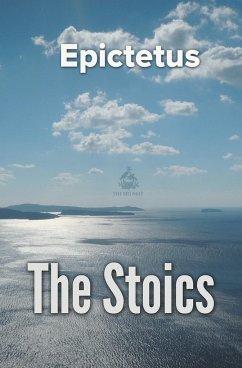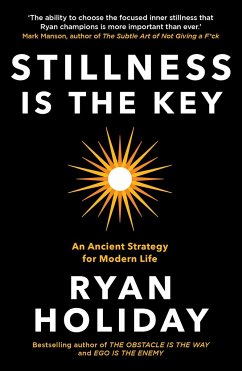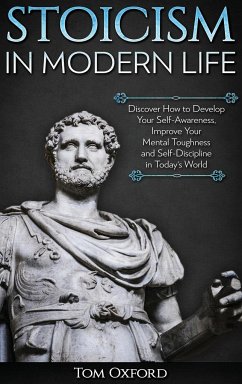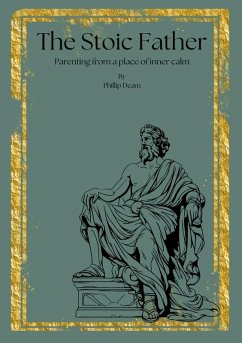
The Stoics
Versandkostenfrei!
Versandfertig in 1-2 Wochen
15,99 €
inkl. MwSt.

PAYBACK Punkte
8 °P sammeln!
Complete teachings of the Stoic philosopher Epictetus including: The Enchiridion, The Discourses, The Golden Sayings, The Hymn of Cleanthes. The book is a complete guide for the advanced student of Stoicism to show him the best roads toward the goal of becoming a true philosopher. Epictetus was a Greek-speaking Stoic philosopher. He lived in Rome until his banishment, when he went to Nicopolis in north-western Greece for the rest of his life. Epictetus taught that philosophy is a way of life and not just a theoretical discipline. To Epictetus, all external events are beyond our control; we sho...
Complete teachings of the Stoic philosopher Epictetus including: The Enchiridion, The Discourses, The Golden Sayings, The Hymn of Cleanthes. The book is a complete guide for the advanced student of Stoicism to show him the best roads toward the goal of becoming a true philosopher. Epictetus was a Greek-speaking Stoic philosopher. He lived in Rome until his banishment, when he went to Nicopolis in north-western Greece for the rest of his life. Epictetus taught that philosophy is a way of life and not just a theoretical discipline. To Epictetus, all external events are beyond our control; we should accept whatever happens calmly and dispassionately. However, individuals are responsible for their own actions, which they can examine and control through rigorous self-discipline.














